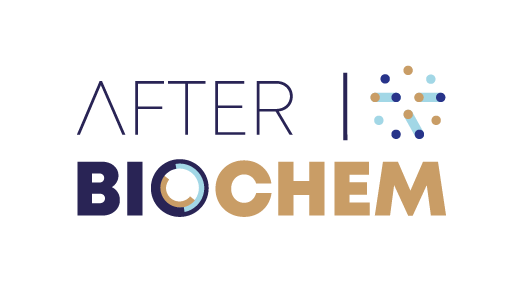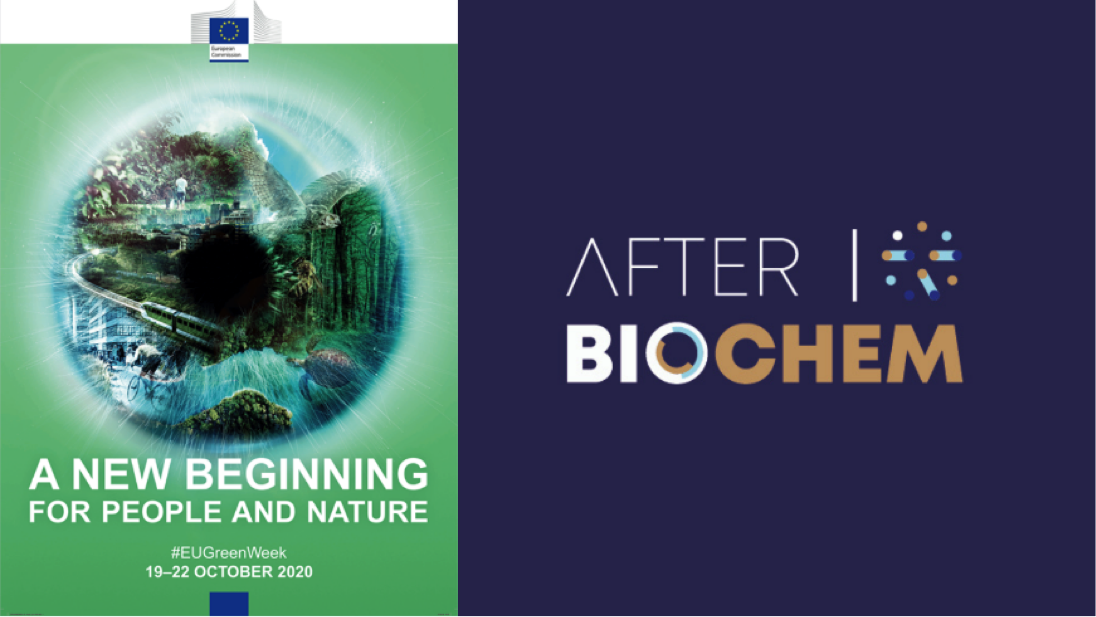Every Year takes place the EU Green Week, one of the main European event dedicated to environmental policy. From 19th to the 22nd of October 2020, various virtual events are organized, including a launching Event in Lisbon, 3 days of conferences and various virtual stands hosted by prestigious groups and institutions. The following article is describing how AFTER-BIOCHEM and its associated public-private partnership BBI-JU program is contributing to green recovery.
The European Green Week initiative
This Year, the European Green week will highlight nature and biodiversity in close link to Europe’s recovery after the COVID-19 crisis. During the whole week, discussions will focus on the role of EU policies, such as the European Green Deal and the EU Biodiversity Strategy, in creating jobs and sustainable growth, while protecting and restoring nature. The 2020 Edition of the European Green Week will also act as a milestone on the path to COP 15, the 15th Conference of the Parties to the Convention on Biological Diversity, due to take place next year in Kunming, Yunnan Province (China), where world leaders will gather and adopt a new global deal for people and nature.
The current contribution of AFTER-BIOCHEM to market bio-based solutions
AFTER-BIOCHEM is a very nice example of how bio-based industry is helping to replace non-renewable fossil resources with « waste » and to accelerate the chemical industry transition to circularity. Indeed, AFTER-BIOCHEM aims at creating multiple value chains based on the transformation of agriculture & agroindustry co-products into bio-based and natural molecules for various applications in fragrances & flavoring, personal care, food & feed and industrial chemicals.
Globally, the project is expected to positively impact the environment by significantly reducing the CO2 emissions, compared to traditional fossil-based carboxylic acid production, and by implementing a « zero waste » strategy thanks to an optimized production process and the use of co-products in the form of fertilizers.
The project will ensure the replicability of the flagship biorefinery concept to various sustainable resources, thus providing a continuous supply. Consequently, the AFTER-BIOCHEM integrated solution will increase the deployment of nature-based solutions and therefore reduce the land-use pressure.
Finally, the project has an entire work-package dedicated to the investigation of the sustainability of the flagship biorefinery regarding three sustainability pillars: environmental performance, economic feasibility as well as societal impact. By the end of the project, the results will be integrated into a decision support tool to ensure that flagship replication will be made respecting the environment and society.
The future of bio-based industries and the green recovery
Ambition CBE
Following the significant impacts of the current BBI-JU, its founding partners, the Biobased Industry Consortium, put together an even more ambitious plan: the European Partnership for Circular Bio-based Europe (CBE). At the heart of CBE, the observation that many national or regional bioeconomy strategies are lacking qualitative and quantitative criteria to evaluate the global impacts of new bioeconomy innovation-related projects. Therefore, CBE will continue to actively support the biorefinery deployment in Europe and reinforce its objectives regarding the protection of the environment, including biodiversity. To fulfil that ambition, the program will continue to involve all stakeholders, notably primary producers and reinforce its demands towards future projects to define and implement relevant environmental and socioeconomic indicators.
More information on the Bio-based industries and the green recovery : https://www.politico.eu/sponsored-content/eu-green-week-bio-based-industries-and-the-green-recovery/

